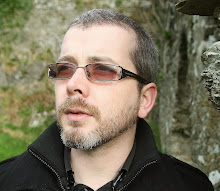
The tagline for Garbhan Downey’s War of the Blue Roses reads: “Who says flower growing is for pansies?” And, as it should, it sets the tone perfectly for this novel. Again, Downey has combined political satire, crime fiction and comedy to produce a work that takes an incredibly fresh and entertaining look at Northern Ireland’s politics, and in the case of this novel, politics in the South of Ireland, England and America. It’s an ambitious and far-reaching story, and though his past record proves he’s the man for this kind of literary challenge, it’s still a pleasant surprise that he does it so well.
The plot follows a large cast of politicians, crooks and botanists as they compete in a gardening competition held in Mountrose, a small village in Derry that serves as a microcosm for the North of Ireland. The village is split by the catholic and protestant divide and every year, during the marching season, the whole place descends into an orgy of sectarian rioting. The competition runs from the start of spring right through to the end of the summer and the gardeners must adhere to two simple rules: Each team should promote cross-community relations (i.e. have both catholic and protestant members) and if there’s even a sniff of politically motivated trouble, the penalty is disqualification. With serious money at stake, this could be a peace-keeping scheme to beat all others. Little surprise it was born of the slick political mind that is ‘Rubber’ John Blake the Taoiseacht of Ireland and backed by Barney O’Brian, the Irish American president of the USA.
What a premise, right? Well, add bugging technology, political backstabbing, family feuding, romantic shenanigans and a quest for the elusive blue rose, and you’ve got an all out riotous romp with more twists than a Derry country road. And although it can be considered a standalone, Downey fans will be delighted to see the return of some of his greatest recurring characters; Harry the Hurler and ‘Switchblade’ Vic to name but two.
Downey employs a light-hearted and uncomplicated voice in the telling of this tale. Considering the intricacies of the plot, that’s probably a blessing. But what I found most intriguing is how he goes against a lot of the modern advice on writing crime fiction. He head-hops like a madman, sharing multiple character perspectives within paragraphs, and he has nothing against dialogue tagging or adverbs. These are the kind of things that would normally pull me out of the story and make me reach for my editing hat. But when Garbhan Downey does it, it’s okay. He’s that good.
If there’s any justice in the literary world, this will be the book that raises Garbhan Downey’s profile to its full potential. Because the world of politics he has explored encompasses all of Ireland, England and the USA in an accessible and unintimidating way, there is a greater potential for a worldwide audience in this book than in any of the previous tomes. Carl Hiaasen? Christopher Brookmyre? Watch your backs, lads. There’s a new social commentator clawing his way up the ranks and he’s taking no political prisoners.




2 comments:
Well, Garbhan hasn't quite made his way over here yet, but I like that premise of the cross-cultural teams that feel bound to behave for the sake of the money. Here's a man who has an understanding of human motivation.
I've just tagged you for a meme, Gerard. Feel free not to do it, of course, but if you want to give it a stab, you can use my post as a model, or Peter Rozovsky's, or Adrian's--all slightly different. Or make up your own questions and answers. If you give it a go, have fun with it.
Seana - Cheers! Hopefully I'll get a chance to play the meme thing tomorrow. Right now, I should be washing dishes.
gb
Post a Comment